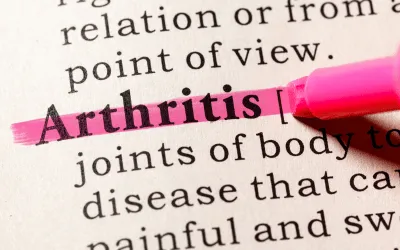About Arthritis
As the nation’s #1 cause of disability, arthritis affects nearly 60 million adults and 300,000 children. Over 100 types of arthritis and related conditions damage the joints and often other organs.
How can we assist you?
Helpful Tools for You

Could Pesticides Be Increasing Your Risk of Rheumatoid Arthritis?
When we think about the causes of rheumatoid arthritis (RA), we often consider genetics, lifestyle, and diet. However, a new study published in Scientific Reports introduces another potential factor into the mix: pesticides. The research highlights a concerning connection between pesticide exposure and an increased risk of developing RA, particularly among older adults who have worked closely with these chemicals.
What Did the Study Find?
The study identified nine pesticides, including malathion and carbofuran, as being linked to a higher likelihood of RA. The findings revealed that individuals with higher levels of exposure to these chemicals had an even greater risk of developing the condition. This suggests that the longer and more frequently someone is exposed to these pesticides, the more their risk may increase.
This is particularly important for those in agricultural professions or environments where pesticide use is common. It emphasizes the need to consider environmental factors when assessing potential triggers for autoimmune diseases like RA.
Why Does This Matter?
Rheumatoid arthritis is a complex autoimmune disease that occurs when the immune system mistakenly attacks the body’s own tissues, leading to joint pain, inflammation, and stiffness. While the exact cause of RA remains unclear, it’s understood that both genetic predisposition and external triggers play significant roles in its development.
This new research adds to a growing body of evidence suggesting that environmental exposures—such as to certain chemicals—could be influencing the onset or progression of autoimmune diseases. Pesticides, in particular, may be acting as one of these external triggers, making it crucial to raise awareness among those at risk.
How Can You Protect Yourself?
If you work with pesticides or live in an area where exposure is common, there are steps you can take to reduce your risk:
Wear Protective Gear: Always use gloves, masks, and other safety equipment when handling or being near pesticides.
Follow Safety Guidelines: Adhere to best practices for handling, applying, and storing these chemicals.
Limit Direct Contact: Minimize the amount of time spent in areas where pesticides are heavily used.
Get Regular Health Check-Ups: If you’ve been exposed to pesticides, speak to your healthcare provider about any concerns or symptoms, such as joint pain or stiffness.
What’s Next?
This study underscores the need for continued research into the environmental factors that contribute to RA and other autoimmune diseases. Understanding how pesticides and other chemicals interact with the body can help us develop more effective prevention and treatment strategies.
It’s also a reminder of the importance of taking proactive steps to protect yourself and your loved ones from unnecessary exposure. Whether you’re a farmer, gardener, or simply living in a rural area, awareness and precaution are key.
By understanding the potential risks and taking preventative measures, we can work together to reduce the impact of RA and promote healthier lives.
Effects of Arthritis

Cause of Disability
In the United States, 23% of all adults, or more than 54 million people, have arthritis. It is a leading cause of work disability, with annual costs for medical care and lost earnings of $303.5 billion.

Workforce Effects
Sixty percent of US adults with arthritis are of working age (18 to 64 years). Arthritis can limit the type of work they are able to do or keep them from working at all.

Global Impact
In fact, 8 million working-age adults report that their ability to work is limited because of their arthritis. For example, they may have a hard time climbing stairs or walking from a parking deck to their workplace.
Promoting Interventions That Reduce Arthritis Pain
American Arthritis Foundation recognizes several proven approaches to reduce arthritis symptoms:
Be active. Physical activity—such as walking, bicycling, and swimming—decreases arthritis pain and improves function, mood, and quality of life. Adults with arthritis should move more and sit less throughout the day. Getting at least 150 minutes of moderate-intensity physical activity each week is recommended.
Protect your joints. People can help prevent osteoarthritis by avoiding activities that are more likely to cause joint injuries.
Talk with a doctor. Recommendations from health care providers can motivate people to be physically active and join a self-management education program. Should your arthritis be interfering with your activities of daily living you may be a candidate to receive many new treatments, and learn how to reverse the arthritis condition.
Have a question?
We're Here to Help
By providing my phone number, I agree to receive text messages from the business.


